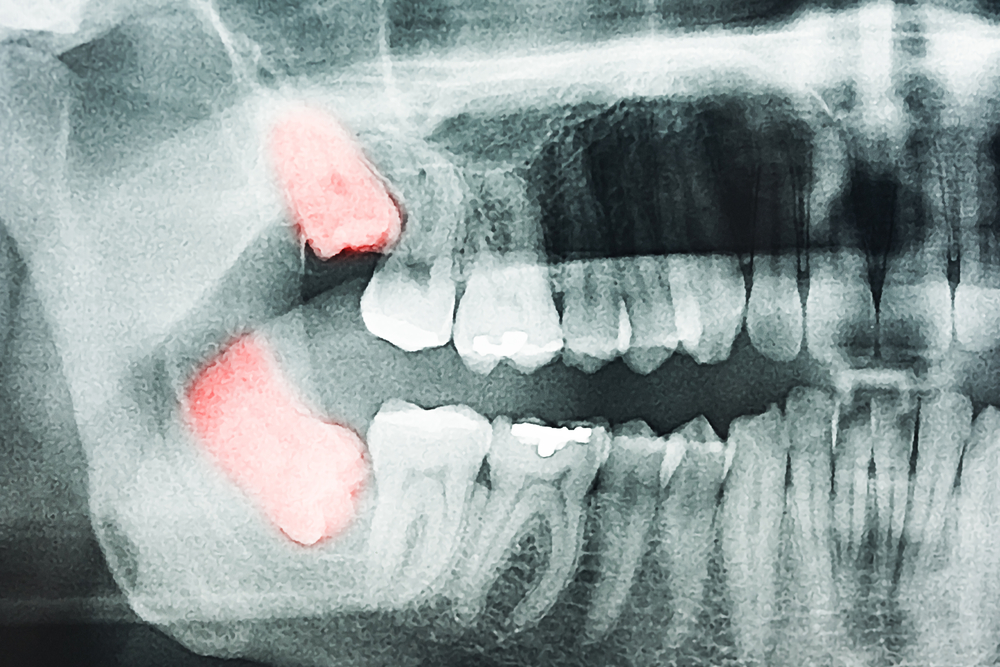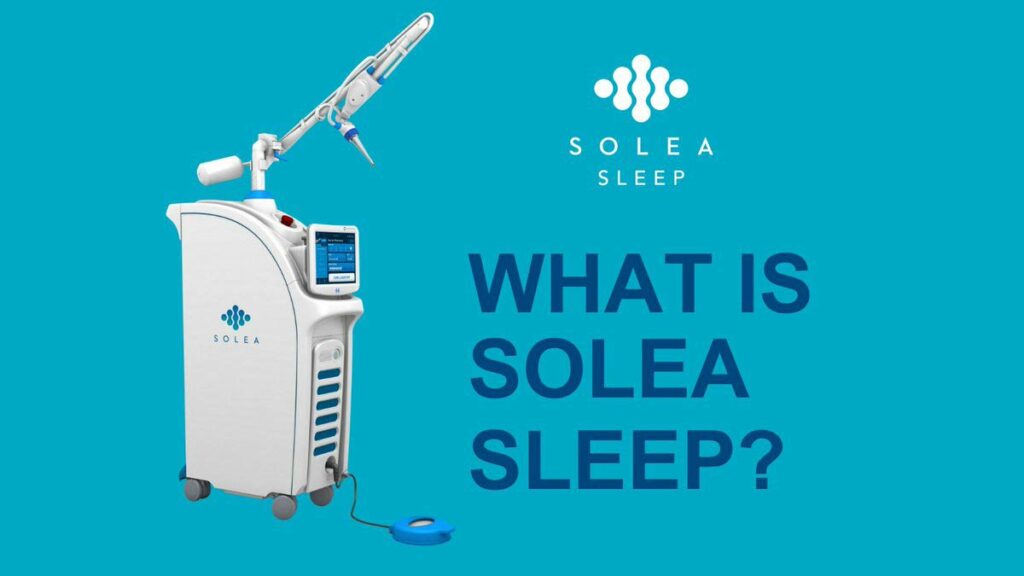Do you have pain and swelling in your jaws? Do you need a wisdom tooth extraction treatment? You’re not alone! Removing problematic wisdom teeth is very common – but still comes with anxiety and questions.
Let’s start with the basics…
What Are Wisdom Teeth?
Wisdom teeth are the last set of molars to erupt, typically between ages 17 to 25. They are clinically called third molars.
Most people have 4 third molars, one in each corner of the mouth: upper left and right, lower left and right. They are named “wisdom” teeth because they appear so much later in life, after a person has gained “wisdom” from adulthood experiences.
These teeth evolved mainly to help grind food. But today with modern diets being softer, wisdom teeth often don’t function properly. They become impacted, come in crooked, or only partially emerge.
Read on to learn why wisdom teeth cause problems, and if you should have yours removed…
Top Signs Your Wisdom Teeth Need To Come Out
For many young adults, wisdom teeth cause no symptoms and can be left alone. But for others, they become a source of constant pain and need wisdom tooth extraction Forestville.
Here are some of the most common signs your wisdom teeth aren’t positioned correctly and should be removed:

Impacted Wisdom Teeth
Impacted wisdom teeth are unable to fully emerge through your gums. They become stuck and impacted at an angle or sideward position.
Food and bacteria easily get trapped under them, causing infection and pain. Your jaw also can’t properly clean itself. Surgery is often needed to take out impacted wisdom teeth before bigger problems occur.
Pericoronitis
This condition causes inflammation and swelling in the gum tissue surrounding wisdom teeth. It’s often triggered by food trapped under partially erupted teeth. Frequent pericoronitis outbreaks indicate you need wisdom tooth extraction Forestville to prevent repeat infections.
Tooth Decay
When wisdom teeth come in crookedly, the uneven biting surfaces are prone to rapid tooth decay and cavities. The location far back in your mouth makes them hard to clean as well. Removing them prevents future dental decay.
Cysts
Fluid-filled sacs called cysts can form around impacted wisdom teeth. Cysts expand and destroy surrounding jaw bone and other teeth. Left untreated, it can be very damaging. Removing the problem wisdom tooth stops cyst formation.
Crowding
There often isn’t enough room for wisdom teeth to erupt properly. They may emerge at odd angles or press on adjacent teeth. This can displace teeth from their proper position and make crowding worse. Extraction prevents damage to your smile.
Jaw Pain
When wisdom teeth push into other teeth or bone, it puts excess pressure on your jaw joint. This can cause pain and limited mouth opening. Removing the problematic teeth brings relief.
If you notice any of the above signs, consult your dentist about scheduling a wisdom tooth extraction. Doing so before major issues develop prevents extensive problems down the road.
Next let’s look closer at the wisdom tooth removal process itself…
Getting Wisdom Teeth Pulled – From Consult to Aftercare
Wisdom tooth extraction Forestville is done as an outpatient procedure, either in a dentist’s office or oral surgeon’s surgical center. Here’s what to expect:
Initial Exam
Your dentist will visually examine your teeth and take x-rays to assess your wisdom teeth’s position. Based on their status, you’ll discuss pros and cons of removing them. If extraction is recommended, you’ll schedule the procedure.
Anesthesia
Extractions are done under local anesthesia (numbing shots) or deeper IV sedation to maximize comfort. You’ll remain awake but feel little to no pain. General anesthesia that puts you fully asleep is rarely needed.
Tooth Removal
After numbing, your dentist will open your gum tissue over the tooth and remove any bone covering it. They will then loosen the tooth with tools and gently pull it out. Stitches may be placed to close the socket where your wisdom tooth was.
Recovery
You’ll remain at the office until the anesthesia wears off, typically 30-60 minutes. You’ll be given post-care instructions like icing your face and eating soft foods initially. Prescriptions help manage discomfort for a few days.
Follow Up
Your dentist will want to see you again after some weeks to ensure you are healing properly. Long term, they will monitor that your bite stays aligned now that your wisdom teeth are gone.
Overall the process is straightforward for both dentists and patients. With modern anesthesia options, it is far less unpleasant than in decades past.
Next let’s look at recovery…
Wisdom Tooth Removal Recovery Timeline
Though everyone heals a bit differently, here is the general wisdom tooth extraction recovery timeline:
Day of Procedure – Swelling and moderate bleeding as anesthesia wears off. Use ice packs to minimize swelling. Eat only soft foods like yogurt.
Days 1-3 – Worst swelling and discomfort. Take all prescribed medications as directed. Swish gently with warm salt water. Continue soft diet and ice packs.
Days 4-7 – Swelling, pain decreasing. Gradually resume brushing teeth near extraction sites. Try adding in harder foods.
Days 7-14 – Sutures dissolve (or removed by dentist). Swelling almost gone. Discomfort managed with OTC meds as needed. Healing socket where tooth was.
2 Weeks – Back to most normal routines except strenuous exercise. See dentist for follow up exam.
4-6 Weeks – Wisdom tooth sockets fully healed. Okay for all activity.
With diligent aftercare and icing, you should be past the worst discomfort within 3 to 5 days. Gradual improvement follows. Taking it easy initially speeds overall recovery.
Wisdom Tooth Extraction FAQs
Here are answers to some frequently asked wisdom tooth questions:
Should I get all 4 out at once?
Generally yes, removing all problematic wisdom teeth in one visit saves you from multiple procedures down the road. Discuss your specific case with your oral surgeon.
How long is recovery if I get all 4 out?
Recovery is quicker if done together versus multiple visits. Follow the timeline above for full healing within 4-6 weeks.
How bad does it hurt?
Thanks to anesthesia, you’ll feel minimal to moderate discomfort for the first few days. Prescription strength pain relievers help tremendously.
Can I still work/go to school?
After the first 1-3 days, you should be able to return to normal routines with some accommodations like eating soft foods.
Can wisdom teeth grow back?
No, once removed the wisdom teeth will not regrow. But adjacent teeth may shift over time, so retainers help maintain proper alignment.
What if I don’t get them out?
Problematic wisdom teeth often worsen over time. It’s best to remove them proactively before extensive infection, decay or cysts develop. Address issues now and avoid bigger operations later.
Still worried?
Know that millions of wisdom teeth extractions occur annually – the procedures are very routine. Stay on top of your pain medication schedule and icing, and the recovery time will fly by. You’ll avoid years of chronic pain.
About Our Practice – Forestville Family Dentistry
This guide was written by Dr. Anthony Grados of Forestville Family Dentistry. We offer exceptional care including wisdom tooth extractions for patients of all ages.
Located in Forestville, CA, we utilize modern techniques for comfortable, easy procedures. Both simple and surgical extractions performed.
Visit our website to request your wisdom tooth exam:
www.forestvillefamilydentistry.com
Or call us at 707-887-2140
We look forward to caring for your smile!


